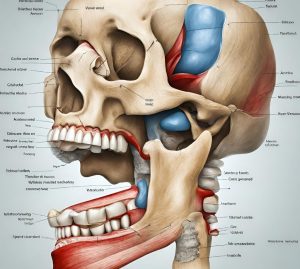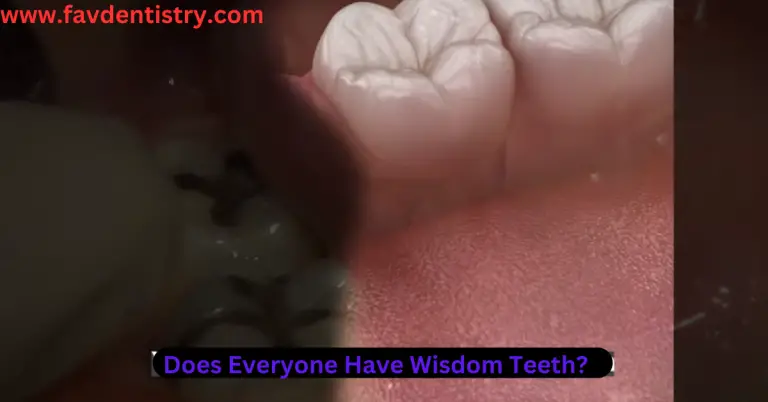Last Updated on 2 days by Dr. Michelle G. Brito
Wisdom teeth are called so because they usually appear during adolescence or early adulthood, when a person is believed to have gained some wisdom. Wisdom teeth, also known as third molars, get their name because they typically erupt between the ages of 17 and 25, when people are considered to be wiser and more mature.
These teeth are the last to emerge in the mouth, and their arrival is often associated with the transition into adulthood. While they were useful for our ancestors who had larger jaws and needed them for chewing tough food, modern diets and smaller jaw sizes often result in wisdom teeth becoming impacted or causing dental problems.
As a result, many individuals need to have their wisdom teeth removed through oral surgery. We will explore why wisdom teeth can be problematic and the reasons behind their peculiar name.
Origins Of Wisdom Teeth
Wisdom teeth, also known as third molars, have a history rooted in our evolutionary past. These teeth developed as a result of changes in our diet and jaw structure over millions of years. Our ancestors had larger jaws and a diet that consisted mainly of tough, coarse foods.
As our diet evolved and became more refined, our jaws became smaller and could no longer accommodate these extra teeth. The term “wisdom teeth” originated from the belief that they emerge during a person’s late teens or early twenties, a time associated with gaining wisdom.
However, not everyone develops wisdom teeth, and for those who do, they often cause problems such as impaction or misalignment due to lack of space. This is why many people undergo wisdom teeth extraction to prevent complications. Understanding the origins of wisdom teeth helps shed light on their purpose and the challenges they can present in modern humans.
The Mysterious Naming
Wisdom teeth are named based on historical explanations and cultural beliefs associated with them. The mysterious naming stems from the notion that these teeth emerge during a person’s late teens or early twenties when they are said to gain wisdom.
Historically, these teeth were believed to be a sign of adulthood and maturity. Culturally, many societies attributed significance to these teeth, considering them a symbol of knowledge, insight, or spiritual growth. Some even believed that the emergence of wisdom teeth could bring good fortune or indicate a person’s potential for wisdom.
Although these beliefs vary across different cultures and time periods, the term “wisdom teeth” continues to fascinate due to its intriguing origins and the connections people have drawn between these teeth and personal development.
The Science Behind Wisdom Teeth
Wisdom teeth, also known as third molars, are the final set of teeth to develop in the mouth. They typically emerge between the ages of 17 and 25. The science behind wisdom teeth lies in their anatomy and function. These teeth were once necessary for our ancestors who had larger jaws and needed them for chewing tough and coarse foods.
However, due to evolution, our jaws have become smaller, leaving little space for these extra teeth. This tight space often leads to dental problems and complications such as impaction, crowding, and infections. Therefore, the rationale behind their removal is to prevent these issues from occurring and maintain oral health.
Dentists recommend removing wisdom teeth that show signs of causing problems in order to prevent future complications.
Evolutionary History And Development
Wisdom teeth, also known as third molars, have a fascinating evolutionary history and development. Teeth have played a significant role in the evolution of our human ancestors, highlighting their importance in our oral health. As our ancestors transitioned from primitive to modern dentition, changes in tooth structure occurred.
These changes can be seen in the reduction of the number of teeth, including the wisdom teeth. In early humans, these molars played a crucial role in chewing tough and coarse food, aiding in digestion and survival. However, as our diets have evolved, these teeth have become less necessary.
Today, many individuals experience complications with their wisdom teeth, such as impaction or crowding, necessitating their removal. Understanding the evolutionary significance of wisdom teeth provides fascinating insights into our ancestors’ lives and the changes that have occurred throughout human history.
Cultural Beliefs And Folklore
Wisdom teeth have long carried cultural significance, embedded in ancient beliefs and superstitions. Various rituals and traditions have been associated with these teeth, stemming from cultural beliefs and folklore. In different cultures, symbolic meanings have been attributed to wisdom teeth, adding a layer of depth to their significance.
These cultural beliefs reflect the significance these teeth hold and the impact they have on individuals’ lives. Whether it is through rituals, traditions, or symbolic interpretations, wisdom teeth have been ingrained in cultural practices throughout history. The tales and folklore surrounding these teeth provide insight into cultural values and beliefs.
Understanding the cultural context of wisdom teeth can deepen our appreciation for the enduring traditions and stories that surround them. By delving into these cultural beliefs and folklore, we gain a glimpse into the rich tapestry of human history and the significance bestowed upon the wisdom teeth.
Anatomy And Function

Wisdom teeth, also known as third molars, are called so because they typically appear later in life. The anatomy and structure of wisdom teeth are similar to other teeth in the mouth. They are the last set of teeth to emerge, usually between the ages of 17 and 25.
The primary function of wisdom teeth is to aid in chewing and grinding food, along with the rest of the teeth. However, due to evolutionary changes and the reduction in jaw size, wisdom teeth often do not have enough space to fully emerge.
This can lead to various issues, such as impacted teeth, crowding, and misalignment. In some cases, wisdom teeth may need to be extracted to prevent complications and maintain optimal oral health.
Dental Problems And Complications
Wisdom teeth, also known as third molars, often cause dental problems and complications. These teeth are prone to becoming impacted, leading to various consequences. Infections, cysts, and tooth decay are commonly associated with wisdom teeth. When they don’t have enough space to properly emerge, they can get stuck in the jawbone or gums.
This impaction can result in pain, swelling, and difficulty in opening the mouth. Moreover, impacted wisdom teeth can create pockets where food particles can get trapped, increasing the risk of bacterial growth and infections. Cysts, which are fluid-filled sacs, may also form around impacted wisdom teeth, causing potential damage to neighboring teeth and jawbone.
Additionally, wisdom teeth can be hard to clean, making them susceptible to decay. Regular check-ups and dental care are crucial for identifying and managing any issues related to wisdom teeth.
The Rationale For Removal
Wisdom teeth got their name due to the belief that they emerge during a person’s adult years, symbolizing wisdom. Removal of these teeth is common, primarily due to various reasons. One of them being their impact on oral health, as they can cause pain, overcrowding, and misalignment.
Many alternatives to extraction exist, but their effectiveness can vary. It’s important to consider the potential risks and benefits before making a decision. Ultimately, removal or retention of wisdom teeth is dependent on individual circumstances and the advice of a dental professional.
With proper care and regular check-ups, maintaining good oral health can be achieved, regardless of the presence or absence of wisdom teeth. So, understanding the rationale behind wisdom tooth removal is essential to make informed decisions about oral health.
Frequently Asked Questions For Why Is It Called Wisdom Teeth
Why Are They Called Wisdom Teeth?
Wisdom teeth are called so because they usually appear during the late teens or early twenties, a time when a person is considered to be more mature and wiser. These teeth are the last to erupt in the mouth, symbolizing the wisdom that comes with age.
What Are Wisdom Teeth And Why Do We Have Them?
Wisdom teeth, also known as third molars, are the last set of teeth to erupt in the mouth. They were useful for our ancestors who had larger jaws and needed these extra molars for chewing hard foods. However, due to evolution, our jaws have become smaller, and now wisdom teeth often become impacted and cause problems.
How Many Wisdom Teeth Do We Have?
Most people have four wisdom teeth, two in the upper jaw and two in the lower jaw. However, some individuals may have fewer or even more wisdom teeth. It is not uncommon for some people to be born without any wisdom teeth at all.
The number of wisdom teeth can vary from person to person.
What Is The Purpose Of Wisdom Teeth?
Wisdom teeth served a purpose in our ancestors by providing extra molars for chewing tough foods. However, in modern humans, with smaller jaws and advancements in food processing, wisdom teeth have become vestigial and often cause more harm than good.
Many people need to have them removed to prevent dental problems.
When Do Wisdom Teeth Come In?
Wisdom teeth usually start to come in between the ages of 17 and 25. However, the timing can vary from person to person. Some individuals may experience the eruption of their wisdom teeth earlier or later, and others may not have any wisdom teeth at all.
Regular dental check-ups can help monitor their growth.
Conclusion
Understanding why these molars are called wisdom teeth has provided us with valuable insights into our evolutionary journey. These third molars were necessary in our ancestors’ diets, which primarily consisted of coarse and tough foods. As our diets evolved and our jaws became smaller, these teeth became less essential and often caused complications.
While the removal of wisdom teeth is common, it is important to consult with a dental professional to determine the best course of action based on individual circumstances. This decision should consider factors such as the alignment of the teeth, the potential for impaction or infection, and overall oral health.
Regular dental check-ups and oral hygiene practices can help identify any issues with wisdom teeth early on, promoting oral health and preventing further complications. Whether we choose to keep or remove them, understanding the origins and role of wisdom teeth allows us to appreciate the fascinating complexities of our anatomy and how it has adapted over time.



